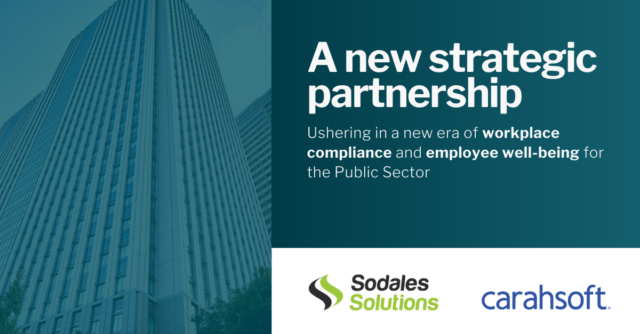


As we venture deeper into 2024, the global landscape of employee privacy is undergoing significant transformations, compelling HR professionals and business leaders worldwide to revisit and rethink their strategies. This blog post is your gateway to understanding the cutting-edge trends that are currently sculpting the privacy framework within labor relations across the globe. From stringent new data protection laws to innovative privacy-enhancing technologies, we will delve into the most critical developments that promise to redefine how organizations handle and protect employee data. Prepare to be enlightened with insights that not only highlight the challenges but also showcase the opportunities that lie ahead in fostering a compliant, transparent and respectful workplace environment.
One of the most daunting challenges facing HR professionals is navigating the complex maze of global data protection regulations. Each jurisdiction brings its unique set of rules, from the European Union’s General Data Protection Regulation (GDPR) to the California Consumer Privacy Act (CCPA) and beyond. These laws not only vary in scope but also in the penalties for non-compliance, which can be severe. Organizations must therefore invest in robust compliance software platforms that are adaptable to the diverse legal landscapes. Such a software like Sodales for Enterprise Health, Safety and Employee Relations, would facilitate the efficient management and secure storage of sensitive data to ensure that organizations not only meet their compliance standards but can exceed them. Compliance is no longer just a legal requirement but a crucial element of corporate ethics and brand reputation.
As guardians of worker rights, unions are increasingly recognizing the importance of privacy as a critical area of focus. Through collective bargaining, unions have a potent tool at their disposal to negotiate terms that safeguard worker privacy, thus contributing to a safer and more respectful workplace.
Here are some key strategies employed by unions:
Unions are stepping up to ensure that collective agreements include comprehensive privacy clauses. These clauses are meticulously crafted to cover various aspects of privacy, such as limitations on surveillance practices, the handling of personal and sensitive data and protocols for notifying employees in the event of a data breach. By setting clear terms on how employers can collect, use and store employee data, these agreements help in establishing a legal framework that protects employee interests.
Beyond negotiation, unions play a crucial role in educating their members about their privacy rights. This involves organizing workshops, seminars and training sessions that inform employees about how their data should be handled and what measures they can take to protect their personal information. Educational initiatives often cover topics such as securing personal devices used for work and understanding the privacy policies of their organization. By empowering members with knowledge, unions help build a workforce that is vigilant and proactive about safeguarding their own data.
At a broader level, unions are increasingly involved in advocacy efforts to influence public policy and legislation related to privacy. They collaborate with privacy advocates, legal experts and other stakeholders to push for stronger data protection laws that reflect the realities of modern workplaces. These efforts are crucial in shaping a legal environment that prioritizes the privacy of workers, ensuring that regulations keep pace with technological advancements and the changing nature of work.
Through these strategies, unions are not only enhancing workplace privacy but also reinforcing their role as pivotal players in the modern labor landscape. By championing the cause of privacy, unions help ensure that the workplace remains respectful and compliant with global standards of data protection, thus fostering a culture of trust and security among employees.
Sodales’ software enhances union-led privacy initiatives by providing tools that support critical functions for complying with rulebooks and bargaining agreements. Sodales offers a collaborative platform that simplifies the negotiation process through features like document management, with a centralized location for all contracts including CBAs, ensuring that all parties are aligned during collective bargaining. Sodales’ CBA management module is invaluable for storing and revising privacy clauses in collective agreements, allowing unions to meticulously track changes. Additionally, Sodales supports union preparation by offering storage access for a repository of legal resources and precedent agreements that bolster privacy protections.
Now let’s look at some more privacy trends in labor relations.
16% of global companies have their employees working from home full-time. The shift to remote work has exponentially increased the use of surveillance tools in the workplace. While these tools can help in monitoring productivity and securing corporate data, they also raise significant privacy concerns. The ethical use of surveillance technology is becoming a hot topic, prompting organizations to establish clear and transparent policies that define the boundaries of surveillance. H&M Germany was fined over $40 million US, for the “gross disregard” of the privacy rights of its employees. According to a statement issued by the Hamburg regulator, H&M acquired “extensive recordings of the private-life circumstances” of several hundred employees at the service center since 2014.
Companies must strike a delicate balance between ensuring productivity and respecting the privacy rights of their employees, making transparency not just a policy but a practice. This involves open communication with employees about what is being monitored and why, which is essential for maintaining trust and morale in the workplace. Ideally, your workforce analytics tools should also allow employees to view their own data, helping them understand their work patterns and manage their time more effectively.
In our interconnected world, data seldom remains within one country’s borders, posing substantial challenges in cross-border data handling. In 2017, 35 countries worldwide had requirements for data localization and cross-border control, and in 2023, 62 countries and regions had implemented such restrictions already. The invalidation of the Privacy Shield framework has left many organizations seeking alternative legal mechanisms for data transfer between the EU and the U.S., such as the Standard Contractual Clauses (SCCs). Recently, the United States, known for promoting the free flow of data through its extensive jurisdiction, issued Executive Order 14117. This order imposes restrictions on the cross-border movement of sensitive information.
Navigating these changes requires a keen understanding of international data transfer laws and a proactive approach in implementing compliant data handling practices. Organizations need to ensure their data transfer policies are transparent and robust, mitigating risks associated with non-compliance while maintaining the integrity of personal data.
As privacy concerns intensify across the globe, the development and deployment of Privacy-Enhancing Technologies (PETs) have become more critical. Homomorphic Encryption (HE), Secure Multi-Party Computation (SMPC) and Trusted Execution Environments (TEE), are few of many PETs that are pivotal in propelling and safeguarding dynamic collaborations.
Innovations such as data masking, encryption and differential privacy are increasingly adopted by organizations seeking to safeguard sensitive information. These technologies are instrumental in enabling the safe utilization of data, reducing the risks of privacy breaches significantly. HR departments are leveraging PETs to secure a wide array of employee data, ranging from personal identifiers to health-related information.
The implementation of these technologies not only aids in compliance with stringent privacy laws but also cultivates a culture deeply rooted in privacy awareness within the organization. This commitment to enhancing privacy measures sets the stage for the next leap forward in data protection — the AI revolution in labor relations privacy, which promises to transform how we understand and manage privacy in the workplace further.
AI is set to fundamentally transform labor relations, offering unprecedented efficiency gains and significantly bolstering privacy protections. As AI becomes more integrated into HR systems, its capacity to automate and optimize complex processes such as compliance checks, risk assessments and grievance handling is transforming the industry. By minimizing human intervention, AI reduces the potential for bias and errors, ensuring that decisions are made on a more objective, data-driven basis.
One of the most significant impacts of AI in labor relations is its ability to enhance data privacy. Advanced algorithms can effectively strip away identifiable information when retaining critical data necessary for analysis and decision-making. This not only helps organizations comply with stringent global data protection regulations like the GDPR and CCPA but also builds trust with employees, who can be assured that their personal information is handled securely and with respect.
AI-driven technologies like Sodales can forecast labor trends and potential conflicts before they escalate with predictive analytics, allowing for proactive management and resolution. Sodales’ AI capabilities can analyze vast amounts of data to identify patterns that might suggest areas of concern, from employee dissatisfaction to emerging compliance issues.
By integrating AI into labor relations practices, organizations are not only able to operate more efficiently but also offer stronger safeguards for employee privacy. This technological shift is creating more resilient, responsive and respectful labor relations environments, which are essential in the modern digital workplace.
The landscape of privacy in labor relations is continuously evolving, influenced by regulatory changes, technological advancements and shifting societal expectations. Staying informed about these trends is not just about compliance but about building a culture of trust and transparency. By embracing these global trends, organizations can not only navigate the complexities of privacy in labor relations but also enhance their operational effectiveness and employee satisfaction.
To learn how Sodales for Enterprise Health, Safety and Employee Relations can help take your labor relations processes to the next level, book your free industry-specific demo here.
DISCLAIMER: Sodales Solutions Inc. uses artificial intelligence (“AI”) to optimize certain features of its platform and automate various tasks related to health, safety, employee, and labor relations management. These AI-powered features operate within defined parameters and are rigorously monitored to maintain accuracy and adherence to legal and ethical standards. We prioritize the protection of customer data by ensuring compliance with applicable privacy laws. Customer data is used solely for agreed-upon services, with no compromise to privacy.
Please note that this disclaimer is provided to customers for informational purposes only and is not intended to be a replacement for qualified legal advice.
